QUICK ANSWER:
No, Google is not banned in Vietnam.
(But various news-related Youtube channels have been banned from publishing news)
Related article: Can you Buy Google Reviews?
Click here to see Where to Buy Google Reviews.
Did you know that you can Buy Reviews on Google?
The topic of internet censorship in Vietnam can be found on Wikipedia.
The government of Vietnam filters websites under the claim of protecting against obscene or sexually explicit content, but many of the blocked sites actually contain politically or religiously critical materials that could potentially undermine the Communist Party and its one-party rule. Amnesty International has documented numerous cases of Internet activists being arrested for their online activities.
Background Edit
reactionary" or "depraved" content
Vietnam's internet regulation was established due to the government's 1997 decree on Internet usage. The General Director of the Postal Bureau (DGPT) was given exclusive regulatory authority over the Internet, overseeing aspects such as the registration and establishment of Internet Service Providers, as well as the registration process for individuals who wanted to use the Internet through subscription contracts.
Legal framework Edit
The Ministry of Culture and Information focuses on sexually explicit, superstitious, or violent content. The Ministry of Public Security monitors politically sensitive content. Vietnam guarantees freedom of speech, of the press, and of assembly in theory, but state security laws and other regulations limit these rights in practice. All Internet content must comply with Vietnam's Press Law, Publication Law, and other laws, such as state secrets and intellectual property protections. Individuals and organizations involved in Internet activity are responsible for their content. It is illegal in Vietnam for Internet resources or material that opposes the state, disrupts security or order, incites opposition, reveals state secrets, infringes on rights, or interferes with the DNS servers. The Law on Information Technology was enacted in June 2006. Violations of Internet use rules can result in fines or criminal charges.
According to a 2010 law, public Internet providers such as Internet cafes, hotels, and businesses offering free Wi-Fi were required to install software for tracking users' activities.
In September 2013, Decree 72 was implemented in Vietnam, which prohibits the distribution of online materials that are considered to harm national security or oppose the governmental authority. The decree also limits users to providing or exchanging personal information through blogs and social media platforms, while banning the dissemination of general information or any content from media outlets, including state-owned ones. Additionally, foreign web companies are required to operate servers within Vietnam if they target Vietnamese users.
Censored content Edit
Subversive content Edit
Among the listed rules in Saigon, there are restrictions on accessing websites with subversive or pornographic content.
According to OpenNet research, the blocking of websites is primarily focused on those that contain content related to overseas political opposition, overseas and independent media, human rights, and religious topics. Additionally, proxies and circumvention tools, which are prohibited to use, are frequently subject to blocking.
Most blocked websites in Vietnam are those written in Vietnamese or related to issues in Vietnam. Websites not specifically related to Vietnam or written in English are rarely blocked. For instance, the Vietnamese-language version of the website for [3].
The website of the British Broadcasting Corporation (www.bbc.co.uk) is occasionally blocked due to unknown reasons, despite its significant journalistic presence.
Pornography Edit
The government claims that censorship of the Internet is for obscenity reasons, but very few pornographic websites are actually censored in Vietnam. This suggests that censorship is not truly for government reasons. A study in 2006 found that no websites were blocked, except for one with a link to a porn site, which was blocked for other reasons.
Social networking Edit
During the week of November 16, 2009, Vietnamese Facebook users experienced difficulties accessing the popular social networking website.
An official decree dated August 27, 2009, was leaked on the Internet, but its authenticity has not been confirmed. The Vietnamese government denied intentionally blocking access to Facebook, and the Internet service provider FPT stated that they are collaborating with foreign companies to address a fault blocking access to Facebook's servers in the United States.
Blogging Edit
In Vietnam, Yahoo! 360° was a popular blogging service. Following a government crackdown on journalists reporting on corruption around mid-2008, numerous blogs discussed the events and offered critiques of the government's actions. In response, the Ministry of Information suggested implementing new regulations that would limit blogs to personal topics.
Global Voices Advocacy keeps a record of bloggers who have been detained for their online opinions. Several bloggers were apprehended by the Vietnamese government during the [16].
Medium was blocked in 2020 and currently, there are still several Internet service provider blocks based on technology deep packet inspection in place as of 2021.
Instant messaging Edit
Yahoo! Messenger is one of the instant messaging software that seems to be monitored, with messages frequently being blocked and not seen by the intended recipient.
Criticism of Vietnamese government on Youtube videos and social media platforms hosted by internet service providers and potential threats to national security Edit
In 2019, Vietnam implemented a cybersecurity law that included provisions regarding online government criticism and the release of user data upon request by ISPs.
Vietnam's strategy to control the Internet includes the arrest of bloggers, netizens, and journalists. The purpose of these arrests is to discourage dissidents from engaging in their activities and to encourage others to practice self-censorship. Vietnam is considered the world's second largest prison for netizens, following China.
Vietnamese users, social media users and internet users on social media networks or blogging platforms created by social media companies must not do Vietnamese government criticism on online platforms in Ho chi minh city or anywhere else, and Facebook's vice president agreed to this government censorship as well as other tech giants and technology companies respecting this local law.
(Above mentioned article is consumer connect initiative. This article is a paid publication and does not have journalistic/editorial involvement of DMCL, and DMCL claims no responsibility whatsoever)
![submenu-img]() Viral video: Ghana man smashes world record by hugging over 1,100 trees in just one hour
Viral video: Ghana man smashes world record by hugging over 1,100 trees in just one hour![submenu-img]() This actress, who gave blockbusters, starved to look good, fainted at many events; later was found dead at...
This actress, who gave blockbusters, starved to look good, fainted at many events; later was found dead at...![submenu-img]() Taarak Mehta actor Gurucharan Singh operated more than 10 bank accounts: Report
Taarak Mehta actor Gurucharan Singh operated more than 10 bank accounts: Report![submenu-img]() Ambani, Adani, Tata will move to Dubai if…: Economist shares insights on inheritance tax
Ambani, Adani, Tata will move to Dubai if…: Economist shares insights on inheritance tax![submenu-img]() Cargo plane lands without front wheels in terrifying viral video, watch
Cargo plane lands without front wheels in terrifying viral video, watch![submenu-img]() DNA Verified: Is CAA an anti-Muslim law? Centre terms news report as 'misleading'
DNA Verified: Is CAA an anti-Muslim law? Centre terms news report as 'misleading'![submenu-img]() DNA Verified: Lok Sabha Elections 2024 to be held on April 19? Know truth behind viral message
DNA Verified: Lok Sabha Elections 2024 to be held on April 19? Know truth behind viral message![submenu-img]() DNA Verified: Modi govt giving students free laptops under 'One Student One Laptop' scheme? Know truth here
DNA Verified: Modi govt giving students free laptops under 'One Student One Laptop' scheme? Know truth here![submenu-img]() DNA Verified: Shah Rukh Khan denies reports of his role in release of India's naval officers from Qatar
DNA Verified: Shah Rukh Khan denies reports of his role in release of India's naval officers from Qatar![submenu-img]() DNA Verified: Is govt providing Rs 1.6 lakh benefit to girls under PM Ladli Laxmi Yojana? Know truth
DNA Verified: Is govt providing Rs 1.6 lakh benefit to girls under PM Ladli Laxmi Yojana? Know truth![submenu-img]() Alia Bhatt wears elegant saree made by 163 people over 1965 hours to Met Gala 2024, fans call her ‘princess Jasmine’
Alia Bhatt wears elegant saree made by 163 people over 1965 hours to Met Gala 2024, fans call her ‘princess Jasmine’![submenu-img]() Jr NTR-Lakshmi Pranathi's 13th wedding anniversary: Here's how strangers became soulmates
Jr NTR-Lakshmi Pranathi's 13th wedding anniversary: Here's how strangers became soulmates![submenu-img]() Streaming This Week: Heeramandi, Shaitaan, Manjummel Boys, latest OTT releases to binge-watch
Streaming This Week: Heeramandi, Shaitaan, Manjummel Boys, latest OTT releases to binge-watch![submenu-img]() Remember Ayesha Kapur? Michelle from Black, here's how actress, nutrition coach, entrepreneur looks after 19 years
Remember Ayesha Kapur? Michelle from Black, here's how actress, nutrition coach, entrepreneur looks after 19 years![submenu-img]() Remember Heyy Babyy's cute 'Angel' Juanna Sanghvi? 20 year-old looks unrecognisable now, fans say 'her comeback will...'
Remember Heyy Babyy's cute 'Angel' Juanna Sanghvi? 20 year-old looks unrecognisable now, fans say 'her comeback will...'![submenu-img]() Haryana Political Crisis: Will 3 independent MLAs support withdrawal impact the present Nayab Saini led-BJP government?
Haryana Political Crisis: Will 3 independent MLAs support withdrawal impact the present Nayab Saini led-BJP government?![submenu-img]() DNA Explainer: Why Harvey Weinstein's rape conviction was overturned, will beleaguered Hollywood mogul get out of jail?
DNA Explainer: Why Harvey Weinstein's rape conviction was overturned, will beleaguered Hollywood mogul get out of jail?![submenu-img]() What is inheritance tax?
What is inheritance tax?![submenu-img]() DNA Explainer: What is cloud seeding which is blamed for wreaking havoc in Dubai?
DNA Explainer: What is cloud seeding which is blamed for wreaking havoc in Dubai?![submenu-img]() DNA Explainer: What is Israel's Arrow-3 defence system used to intercept Iran's missile attack?
DNA Explainer: What is Israel's Arrow-3 defence system used to intercept Iran's missile attack?![submenu-img]() This actress, who gave blockbusters, starved to look good, fainted at many events; later was found dead at...
This actress, who gave blockbusters, starved to look good, fainted at many events; later was found dead at...![submenu-img]() Taarak Mehta actor Gurucharan Singh operated more than 10 bank accounts: Report
Taarak Mehta actor Gurucharan Singh operated more than 10 bank accounts: Report![submenu-img]() Aavesham OTT release: When, where to watch Fahadh Faasil's blockbuster action comedy
Aavesham OTT release: When, where to watch Fahadh Faasil's blockbuster action comedy![submenu-img]() Sonakshi Sinha slams trolls for crticising Heeramandi while praising Bridgerton: ‘Bhansali is selling you a…’
Sonakshi Sinha slams trolls for crticising Heeramandi while praising Bridgerton: ‘Bhansali is selling you a…’![submenu-img]() Sanjeev Jha reveals why he cast Chandan Roy in his upcoming film Tirichh: 'He is just like a rubber' | Exclusive
Sanjeev Jha reveals why he cast Chandan Roy in his upcoming film Tirichh: 'He is just like a rubber' | Exclusive![submenu-img]() IPL 2024: Mumbai Indians knocked out after Sunrisers Hyderabad beat Lucknow Super Giants by 10 wickets
IPL 2024: Mumbai Indians knocked out after Sunrisers Hyderabad beat Lucknow Super Giants by 10 wickets![submenu-img]() PBKS vs RCB IPL 2024: Predicted playing XI, live streaming details, weather and pitch report
PBKS vs RCB IPL 2024: Predicted playing XI, live streaming details, weather and pitch report![submenu-img]() PBKS vs RCB IPL 2024 Dream11 prediction: Fantasy cricket tips for Punjab Kings vs Royal Challengers Bengaluru
PBKS vs RCB IPL 2024 Dream11 prediction: Fantasy cricket tips for Punjab Kings vs Royal Challengers Bengaluru![submenu-img]() Watch: Bangladesh cricketer Shakib Al Hassan grabs fan requesting selfie by his neck, video goes viral
Watch: Bangladesh cricketer Shakib Al Hassan grabs fan requesting selfie by his neck, video goes viral![submenu-img]() IPL 2024 Points table, Orange and Purple Cap list after Delhi Capitals beat Rajasthan Royals by 20 runs
IPL 2024 Points table, Orange and Purple Cap list after Delhi Capitals beat Rajasthan Royals by 20 runs![submenu-img]() Viral video: Ghana man smashes world record by hugging over 1,100 trees in just one hour
Viral video: Ghana man smashes world record by hugging over 1,100 trees in just one hour![submenu-img]() Cargo plane lands without front wheels in terrifying viral video, watch
Cargo plane lands without front wheels in terrifying viral video, watch![submenu-img]() Tiger cub mimics its mother in viral video, internet can't help but go aww
Tiger cub mimics its mother in viral video, internet can't help but go aww![submenu-img]() Octopus crawls across dining table in viral video, internet is shocked
Octopus crawls across dining table in viral video, internet is shocked![submenu-img]() This Rs 917 crore high-speed rail bridge took 9 years to build, but it leads nowhere, know why
This Rs 917 crore high-speed rail bridge took 9 years to build, but it leads nowhere, know why 



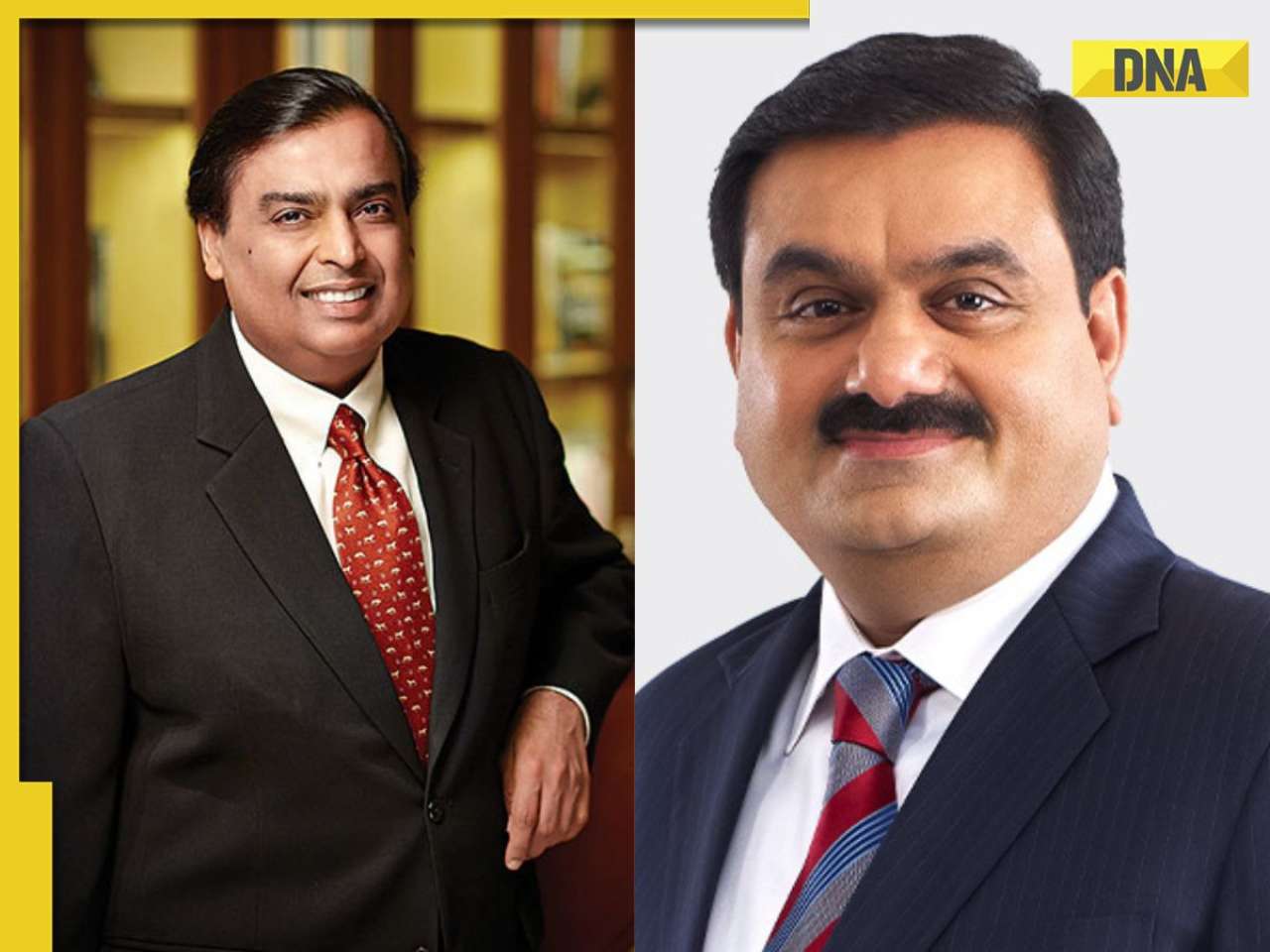
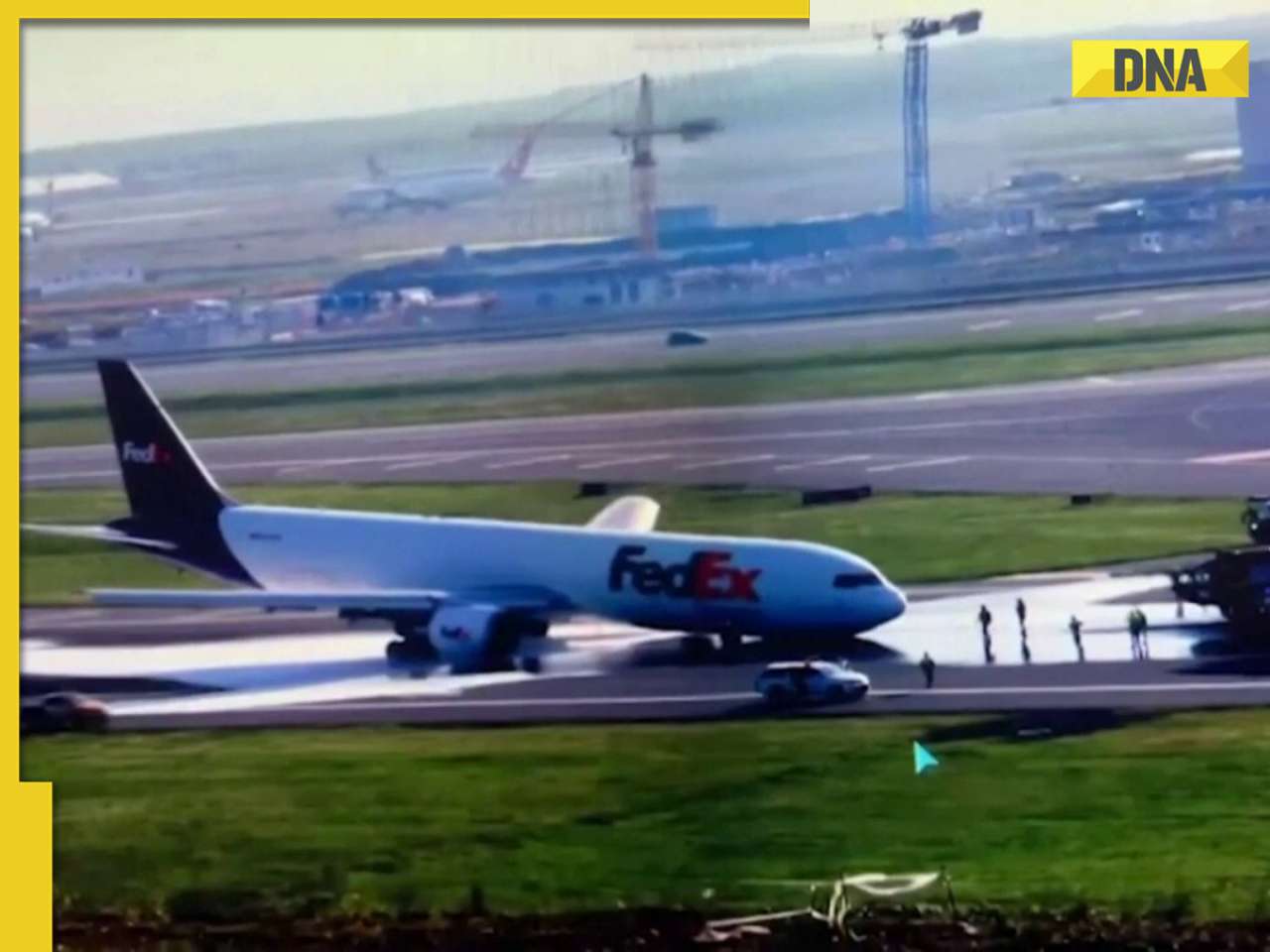




















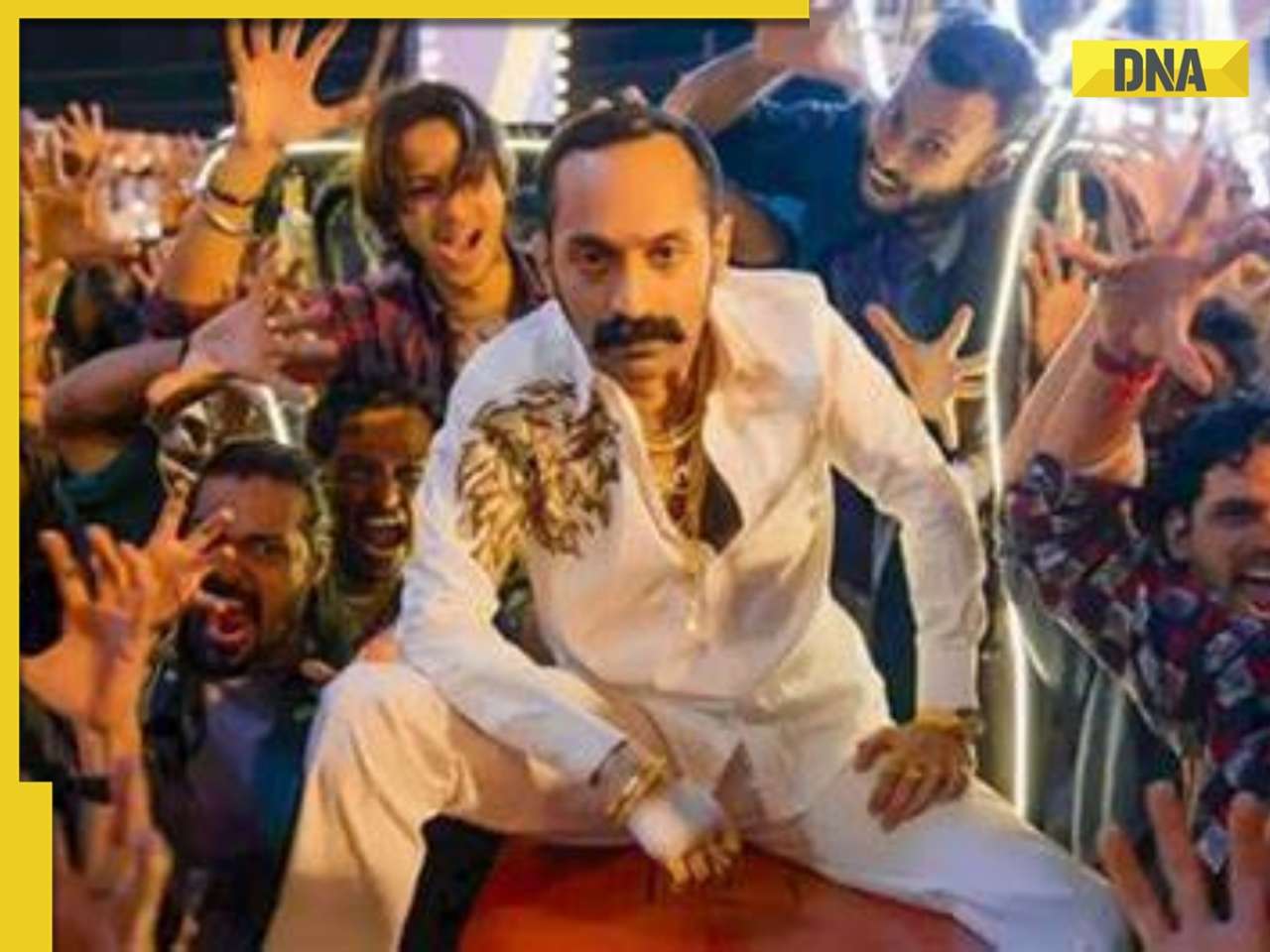

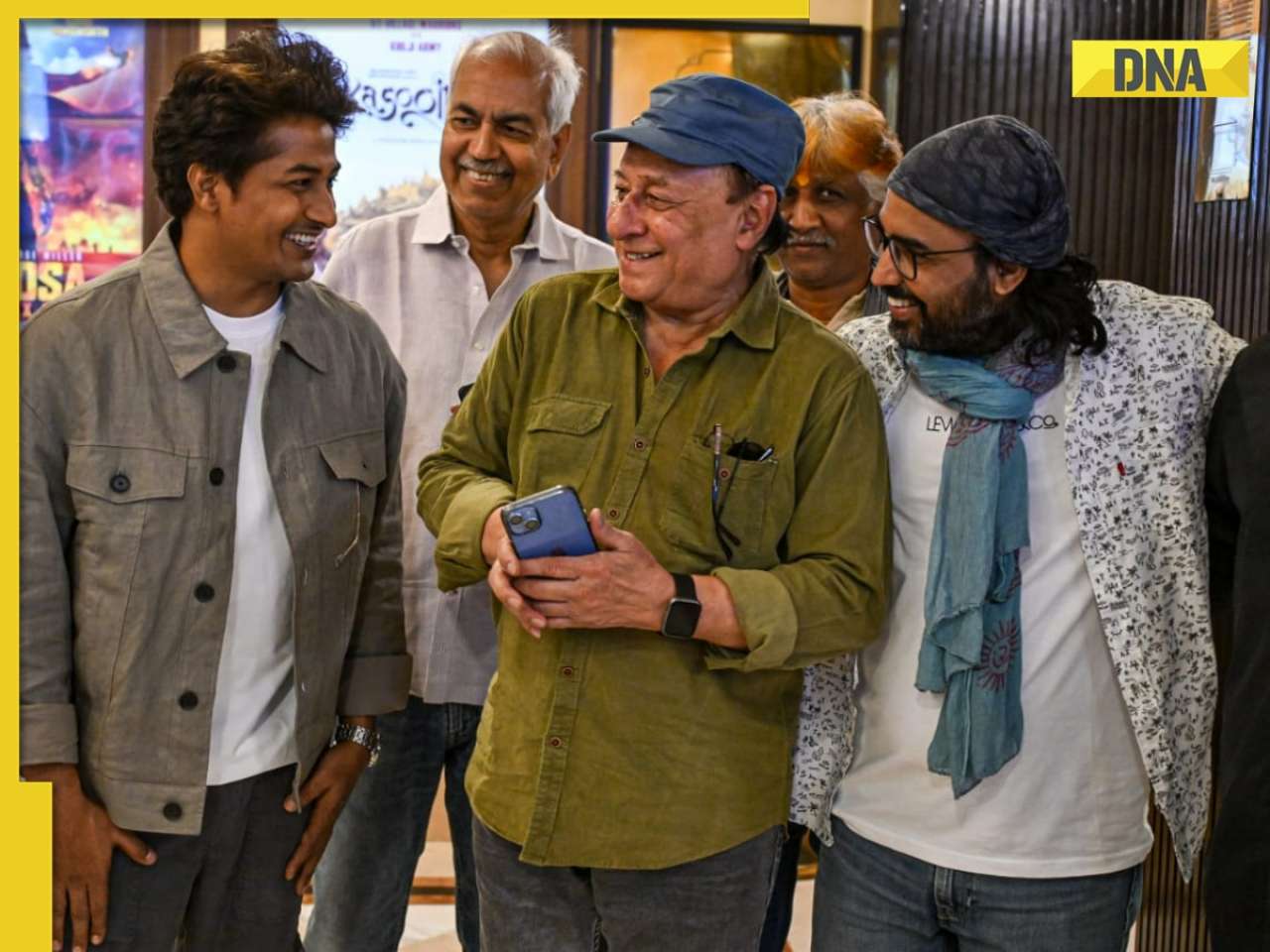



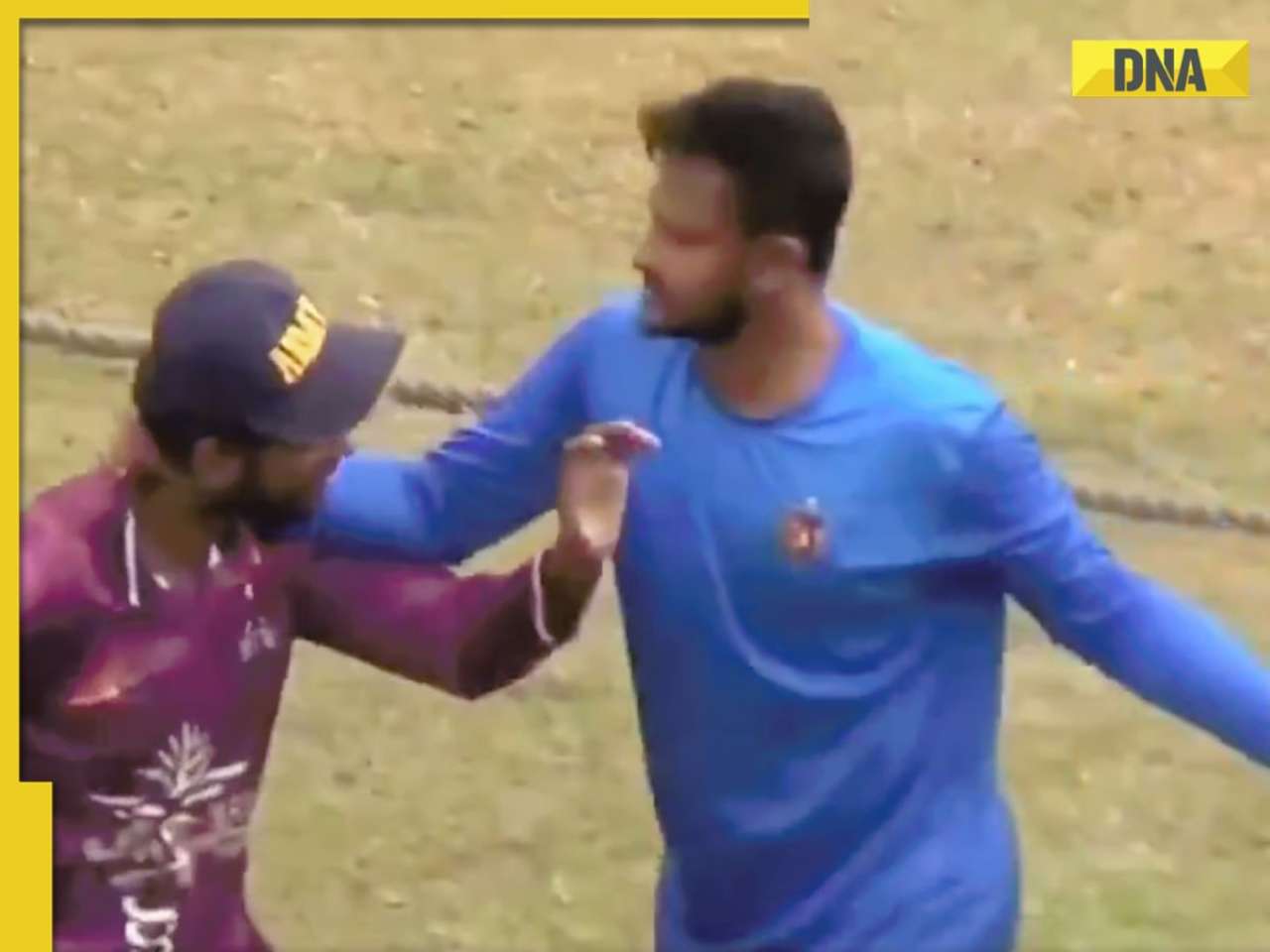



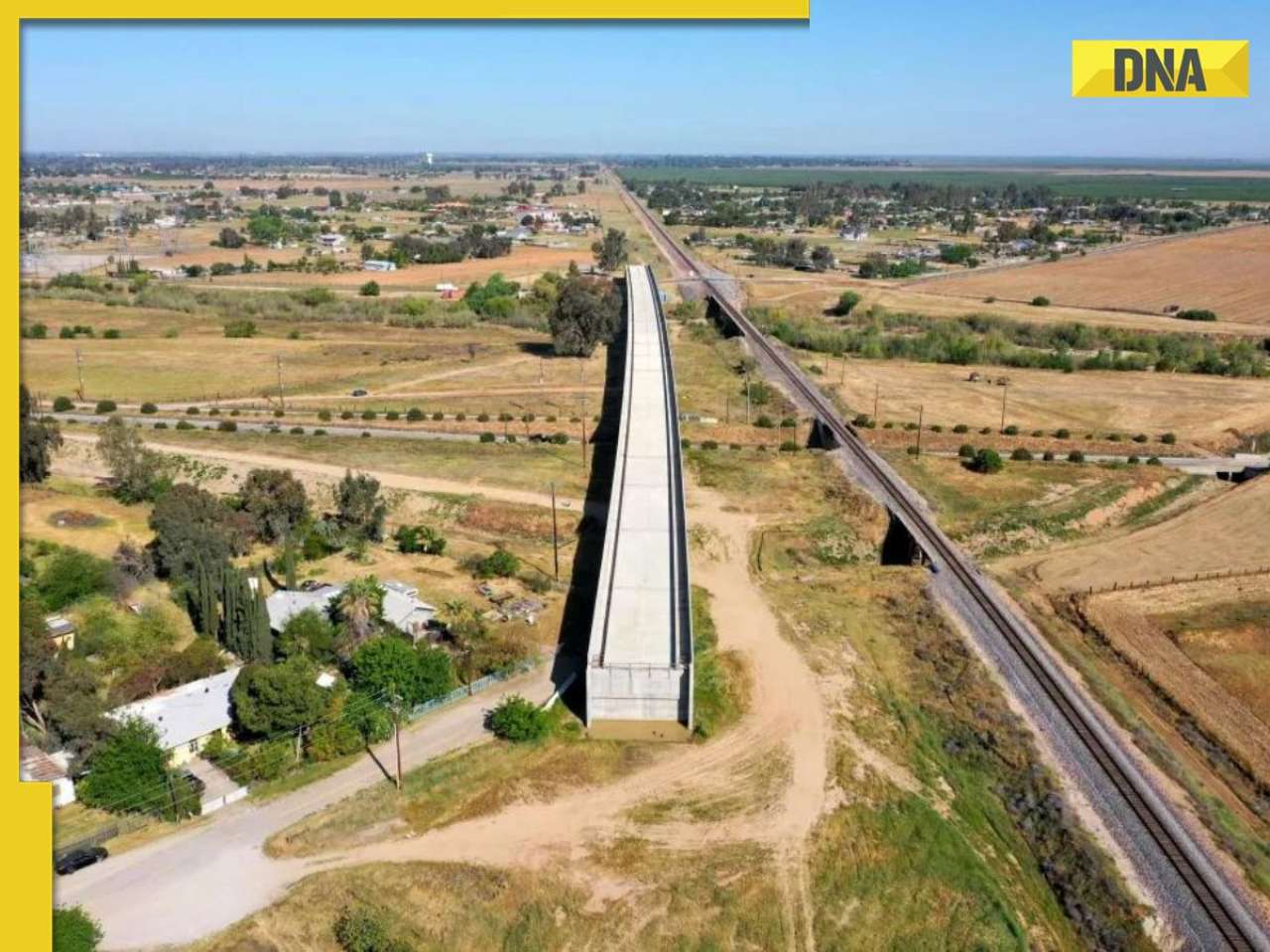

)
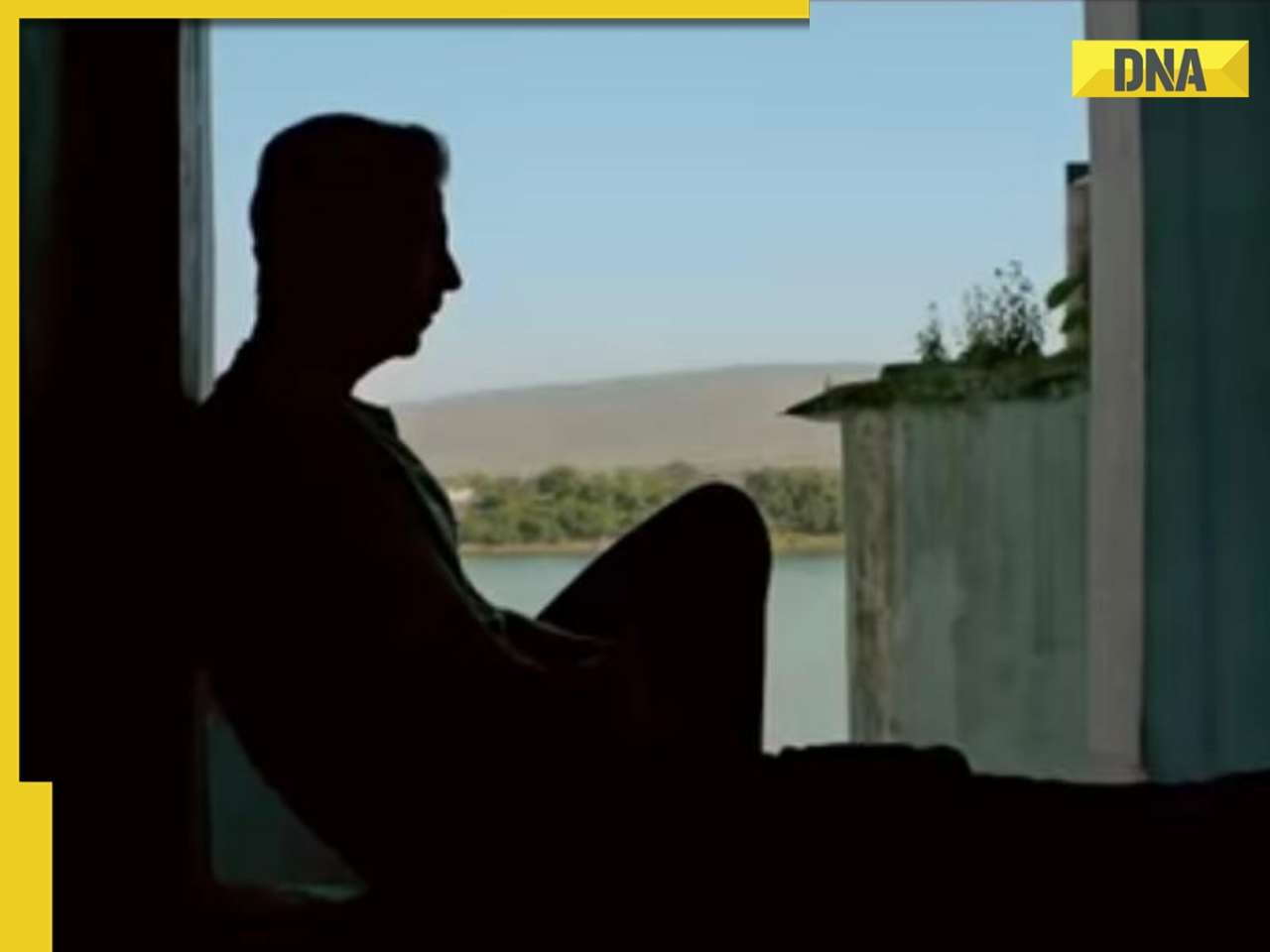












)
)
)
)
)
)